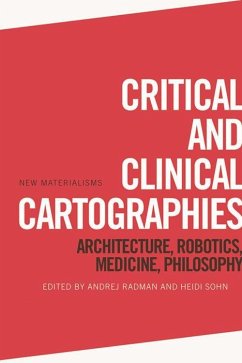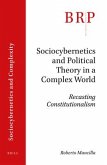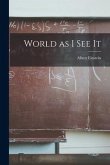'This collection answers, through an impressive range of perspectives, the call of Nietzsche's "great health" - the health that "one does not merely have but also acquires continually", an impersonal health that traverses the whole of life. Displaying the unique ability to embody and map out those pulsing vitalities at the always more-than- and other-than-human intersections of architecture, robotics, medicine and philosophy, these chapters ultimately carry forward Deleuze's "critical and clinical" answer to Nietzsche's call. Enjoy this symptomatology!' Gregory J. Seigworth, Millersville University (co-editor of The Affect Theory Reader) Critical and Clinical Cartographies rethinks medical and design pedagogies in the context of both the Affective and Digital Turns that are occurring under the umbrella of New Materialism. This collection is framed through Deleuze's symptomalogical approach which creates the ideal terrain for architecture and medical technologies of care to meet with robotics, alongside the newly emerging 'materialist landscape'. A number of questions emerge, which are addressed across the collection. - What is the impact of the Digital Turn on the contemporary medical and architectural education and/or practice? - How does the Posthuman Turn influence the possible convergence of medical and architectural education and/or practice? - How has the biopolitical concept of care mutated under the proliferation of digital technology? - How could medical research contribute to architectural design and how could design, in turn, contribute to the improvement of health care? Andrej Radman teaches design and theory courses at Delft University of Technology, Faculty of Architecture. He is a licensed architect and a member of the editorial board of the architecture theory journal Footprint. Heidi Sohn is Associate Professor of Architecture Theory, Faculty of Architecture, TU-Delft. Cover design: [EUP logo] edinburghuniversitypress.com ISBN 978-1-4744-2111-9 Barcode
Hinweis: Dieser Artikel kann nur an eine deutsche Lieferadresse ausgeliefert werden.
Hinweis: Dieser Artikel kann nur an eine deutsche Lieferadresse ausgeliefert werden.








